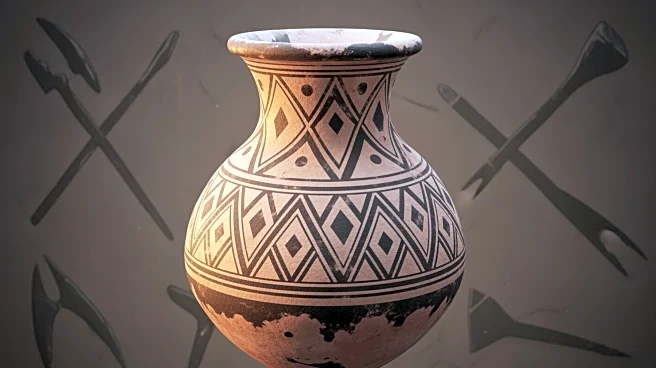What's Happening?
A recent study has revealed that the prehistoric Jomon people of Japan had little to no Denisovan DNA, suggesting limited interaction with this extinct group of Eurasian humans. The research involved analyzing
ancient and modern genomes to trace the genetic influence of Denisovans on various populations. The findings indicate that ancient mainland East Asians had more Denisovan genes compared to the Jomon people, who carried the least Denisovan ancestry among East Asians.
Why It's Important?
This study provides valuable insights into human migration and genetic mixing in prehistoric times. Understanding the genetic makeup of ancient populations helps scientists reconstruct population histories and migration patterns. The minimal Denisovan DNA in the Jomon people suggests unique migration routes or limited interaction with Denisovans, contributing to the broader understanding of human evolution and genetic diversity.
Beyond the Headlines
The study raises questions about the distribution and interaction of Denisovans with other human groups. It highlights the complexity of human evolution and the factors influencing genetic diversity. Further research could explore the reasons behind the limited Denisovan ancestry in the Jomon people, potentially uncovering new aspects of prehistoric human behavior and migration.










